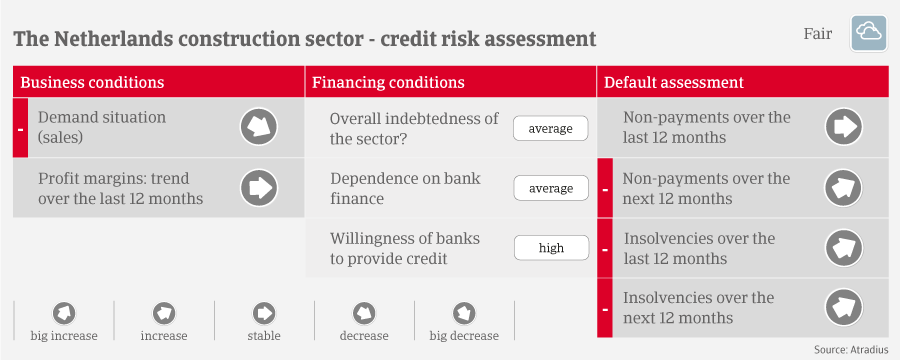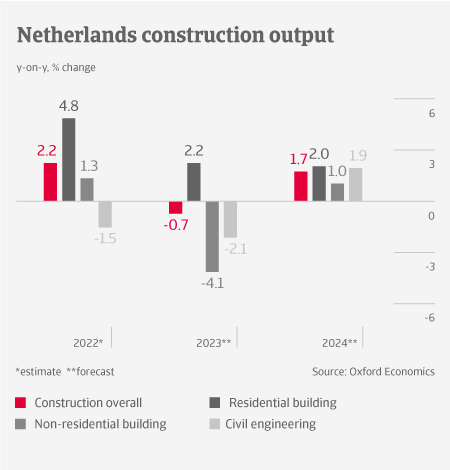
In 2023, Dutch construction output is expected to contract by 0.7%, due to a slowdown in residential construction growth, as well as contractions in the non-residential and civil engineering subsectors. At least the renovation work segment focused on energy-efficient appliances (e.g. solar panels, heating pumps) is still growing.

High inflation is reducing real incomes, while monetary tightening has led to higher mortgage rates and made building financing more expensive. Therefore, households and businesses are reluctant to invest. At the same time, energy and building material costs have substantially increased. Passing on price increases to customers is difficult, because most current contracts lack escalation clauses (although builders aim to include price escalation clauses in new contracts).
Payments in the industry generally take about 45-60 days. Payment experience has been good during the past two years, as the sector remained relatively stable during the pandemic. However, lower demand, inflation, monetary tightening, higher input prices and the expiry of fiscal stimulus have begun to trigger more payment delays and insolvencies. Construction business failures rose 8% in 2022, although from a historically low level. In 2023, we expect insolvencies to increase by about 15%.
Despite the mounting difficulties, our sector assessment remains “Fair” for the time being. The industry has benefited from increasing demand and productivity during the last couple of years, which had a positive impact on profitability and liquidity. Housing demand will remain high in the coming years, while infrastructure needs to be maintained and upgraded.
However, there are also challenges ahead. The market remains fiercely competitive, with persistent pressure on margins. To keep profitability at sufficient levels, construction companies have to focus on first time and innovative building (e.g., more modular construction). Construction activity remains impacted by environmental issues such as nitrogen reduction and tighter rules regarding per- and polyfluoroalkyl substances (PFAS) in the soil. They have resulted in building project delays and postponement of building permits during the past years. Additionally, there is the structural problem of not enough land available for building new houses.



































